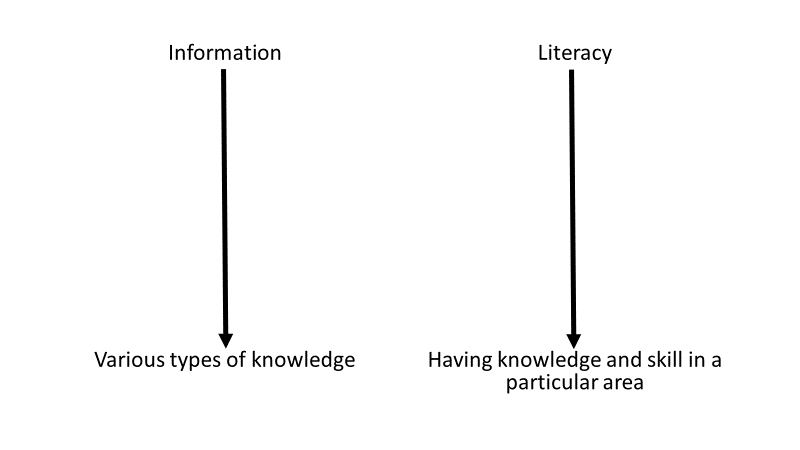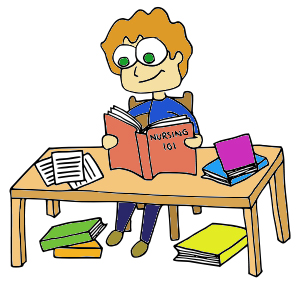Chapter 3: Information Literacy
Overview: Information Literacy
You probably know the words “information” and “literacy,” but the term may be unfamiliar. Simply put, information literacy means having the skills to competently evaluate various types of knowledge. See Figure 3.1.

Figure 3.1: Information Literacy
Becoming information literate is a professional expectation. You are expected to “seek new information, knowledge and best practices for use in the provision of nursing care” (College of Nurses of Ontario, 2014, p. 7). Information literacy is an important skill because there are vast quantities and varying qualities of nursing and health-related information. At times, the information that you discover through literature searches may be contradictory. As a nurse, you need to determine whether the information you are reviewing is high quality, reliable, and relevant to your practice. Additionally, clients and their families will sometimes ask you about something they have heard about from friends, or found on the Web, or heard on the news. You need to know how to sift through information and critically evaluate it.

Figure 3.2: Using information literacy skills
You will use information literacy skills to evaluate the quality and relevance of information. Ultimately, information literacy is a combination of skills that involves:
- Recognizing when information is needed.
- Identifying relevant information.
- Searching and locating the information.
- Evaluating the information.
In this chapter, you will learn how to become information literate!
Reference
CNO (2014). Entry-to-practice competencies for registered nurses. Retrieved from: https://www.cno.org/globalassets/docs/reg/41037_entrytopracitic_final.pdf
Having knowledge and skill related to various types of knowledge.

